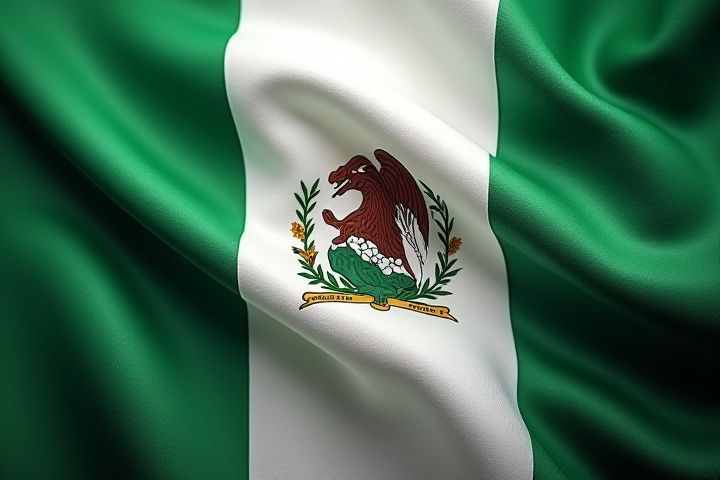
Nigeria's official name is the Federal Republic of Nigeria. It is situated in West Africa and shares borders with Benin, Niger, Chad, and Cameroon. Abuja serves as the capital city, while Lagos remains the largest city, known for its economic significance. The country operates under a presidential system of governance and is divided into 36 states and the Federal Capital Territory. With over 200 million inhabitants, Nigeria ranks as the most populous nation in Africa, characterized by rich cultural diversity and numerous ethnic groups.
Federal Republic of Nigeria
The official name of Nigeria is the Federal Republic of Nigeria. This designation emphasizes its structure as a federation, comprising 36 states and one Federal Capital Territory, Abuja. The country operates a multi-tiered governmental system to accommodate its diverse ethnic groups and religions. As a member of the Commonwealth of Nations, Nigeria plays a significant role in African politics and international relations.
West African country
Nigeria, officially known as the Federal Republic of Nigeria, stands as a prominent country in West Africa. It is bordered by Benin to the west, Niger to the north, Chad to the northeast, and Cameroon to the east, with a coastline along the Atlantic Ocean in the south. As the most populous nation in Africa, Nigeria boasts a rich tapestry of cultures, languages, and ethnic groups, with over 500 distinct languages spoken throughout the region. The country's diverse economy is fueled by sectors such as oil production, agriculture, and telecommunications, making it a significant player on both a regional and global scale.
Largest population in Africa
Nigeria, officially known as the Federal Republic of Nigeria, is recognized as the most populous country in Africa, with a population exceeding 200 million people. This diverse nation is home to over 250 ethnic groups, with the Hausa, Yoruba, and Igbo being the largest. The significant demographic size contributes to Nigeria's vibrant culture and economy, making it a key player in the African continent. As a major hub for trade and commerce, Nigeria's workforce and consumer market are considered some of the most influential across the region.
Gained independence from Britain
Nigeria's official name is the Federal Republic of Nigeria, a designation reflecting its status as a sovereign nation after gaining independence from British colonial rule on October 1, 1960. This milestone marked the end of nearly a century of British control, leading to the establishment of a democratic government. The nation is characterized by its diverse cultures, languages, and ethnic groups, with over 250 distinct languages spoken across its regions. Nigeria's independence day is celebrated annually as a significant event in its history, symbolizing national unity and self-determination.
Capital city is Abuja
Nigeria's official name is the Federal Republic of Nigeria, and its capital city is Abuja. Established as the capital in 1991, Abuja was selected due to its central location, promoting equal access from all regions of the country. The city is known for its modern architecture, political institutions, and cultural diversity, serving as the hub of Nigerian governance. As the seat of government, Abuja houses key landmarks, including the Nigerian National Mosque, the Nigerian National Mosque, and the Aso Rock Presidential Villa.
Divided into 36 states
Nigeria's official name is the Federal Republic of Nigeria, a country located in West Africa. It is divided into 36 states and one Federal Capital Territory, which is Abuja, the nation's capital. Each of these states has its unique cultural, ethnic, and geographical features, contributing to Nigeria's rich diversity. As the most populous country in Africa, Nigeria plays a significant role in regional politics, economics, and culture.
Official language is English
Nigeria's official name is the Federal Republic of Nigeria. The country recognizes English as its official language, a result of its colonial history under British rule. This makes English a vital medium of communication across diverse ethnic groups and regions within Nigeria. The use of English facilitates governance, education, and business, helping to unify a nation with over 500 indigenous languages.
Diverse ethnic groups
Nigeria's official name is the Federal Republic of Nigeria, reflecting its structure as a federation comprising 36 states and the Federal Capital Territory. The nation is renowned for its rich tapestry of over 250 diverse ethnic groups, including the Hausa, Igbo, and Yoruba, each contributing unique languages, customs, and traditions. This cultural diversity fosters a vibrant social landscape, promoting various art forms, music, and culinary practices that reflect the country's multifaceted identity. With such a plethora of ethnic identities, Nigeria serves as a cultural hub in Africa, showcasing the importance of inclusivity and unity among its people.
Mixed economy
Nigeria's official name is the Federal Republic of Nigeria, which operates under a mixed economy system. This economic model combines elements of both capitalism and socialism, allowing for private enterprise alongside significant government involvement in key sectors. You will find that Nigeria's mixed economy facilitates investment opportunities across industries such as oil, agriculture, and telecommunications, while also addressing social needs through government programs. The diversity of its economic structure helps mitigate risks and promotes sustainable growth in a rapidly evolving market.
Rich in cultural heritage
Nigeria, officially known as the Federal Republic of Nigeria, boasts a rich cultural heritage that reflects its diverse ethnic groups, languages, and traditions. With over 250 distinct ethnic communities, such as the Yoruba, Igbo, and Hausa, Nigeria showcases a vibrant tapestry of art, music, and festivals. The country's rich history is encapsulated in its historical sites, such as the Nok culture and ancient Benin Kingdom, which highlight its longstanding traditions and innovations. Your exploration of Nigeria's cultural landscape reveals a unique blend of modern influences and age-old customs, making it a truly fascinating destination.
